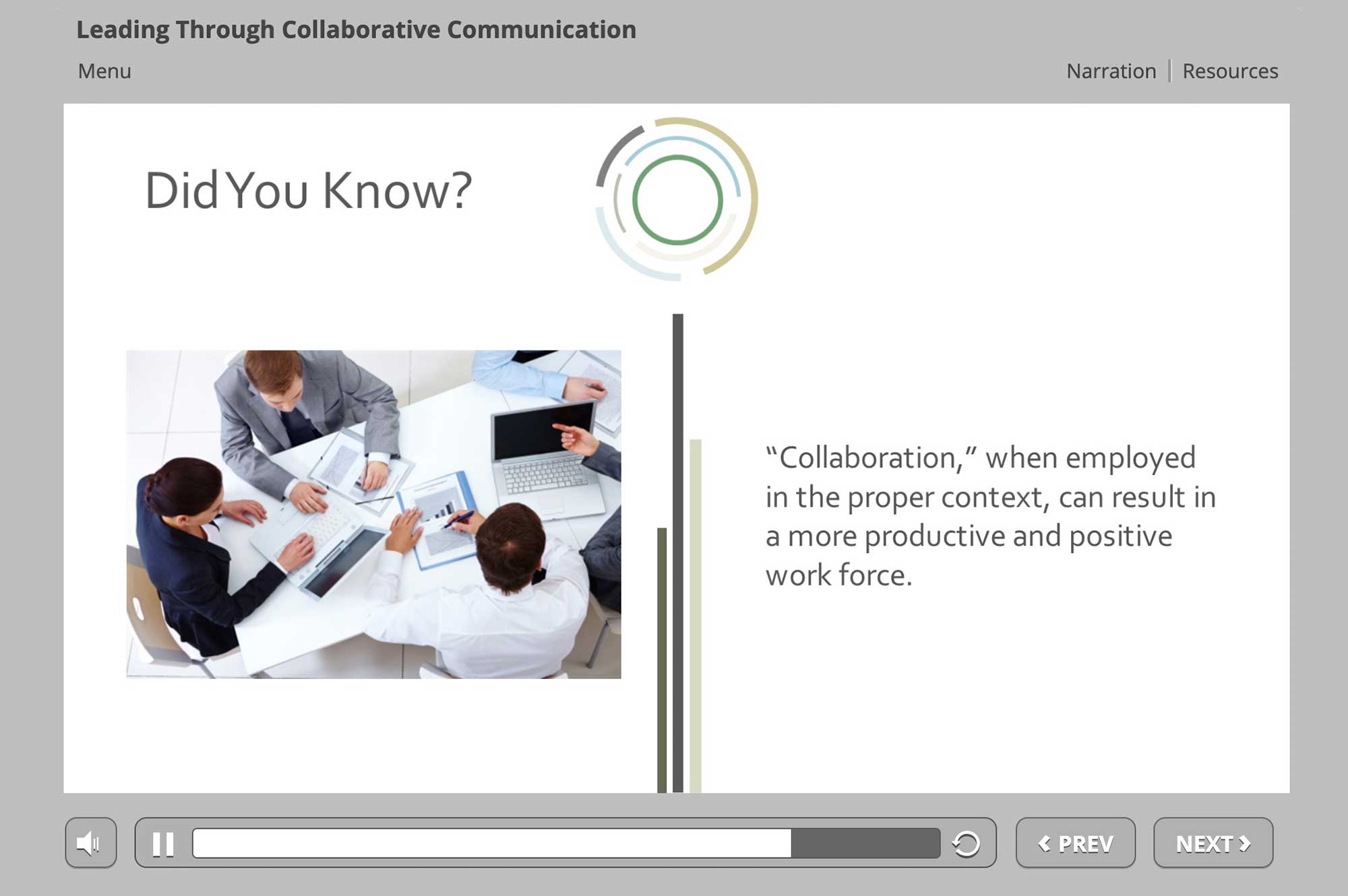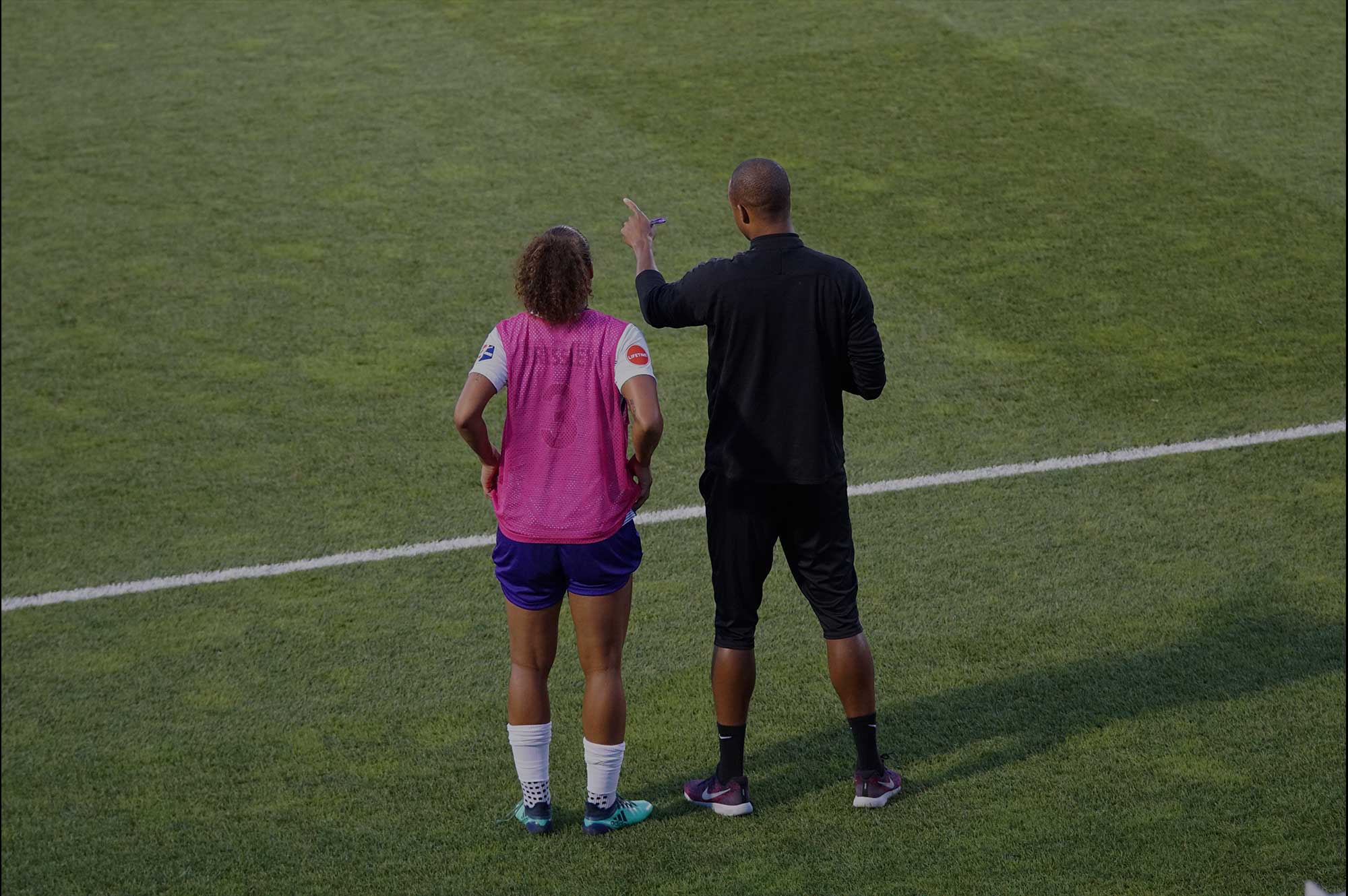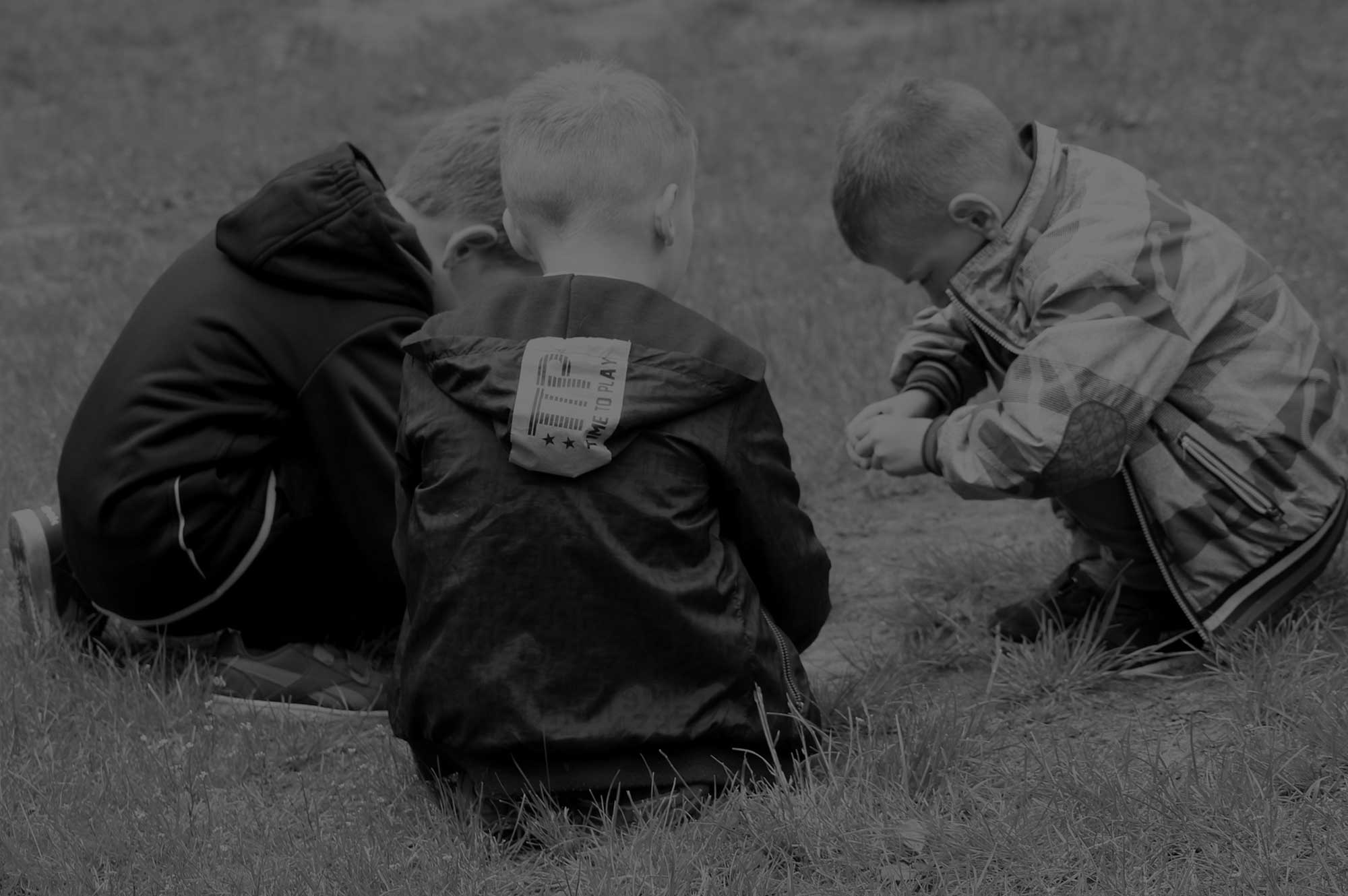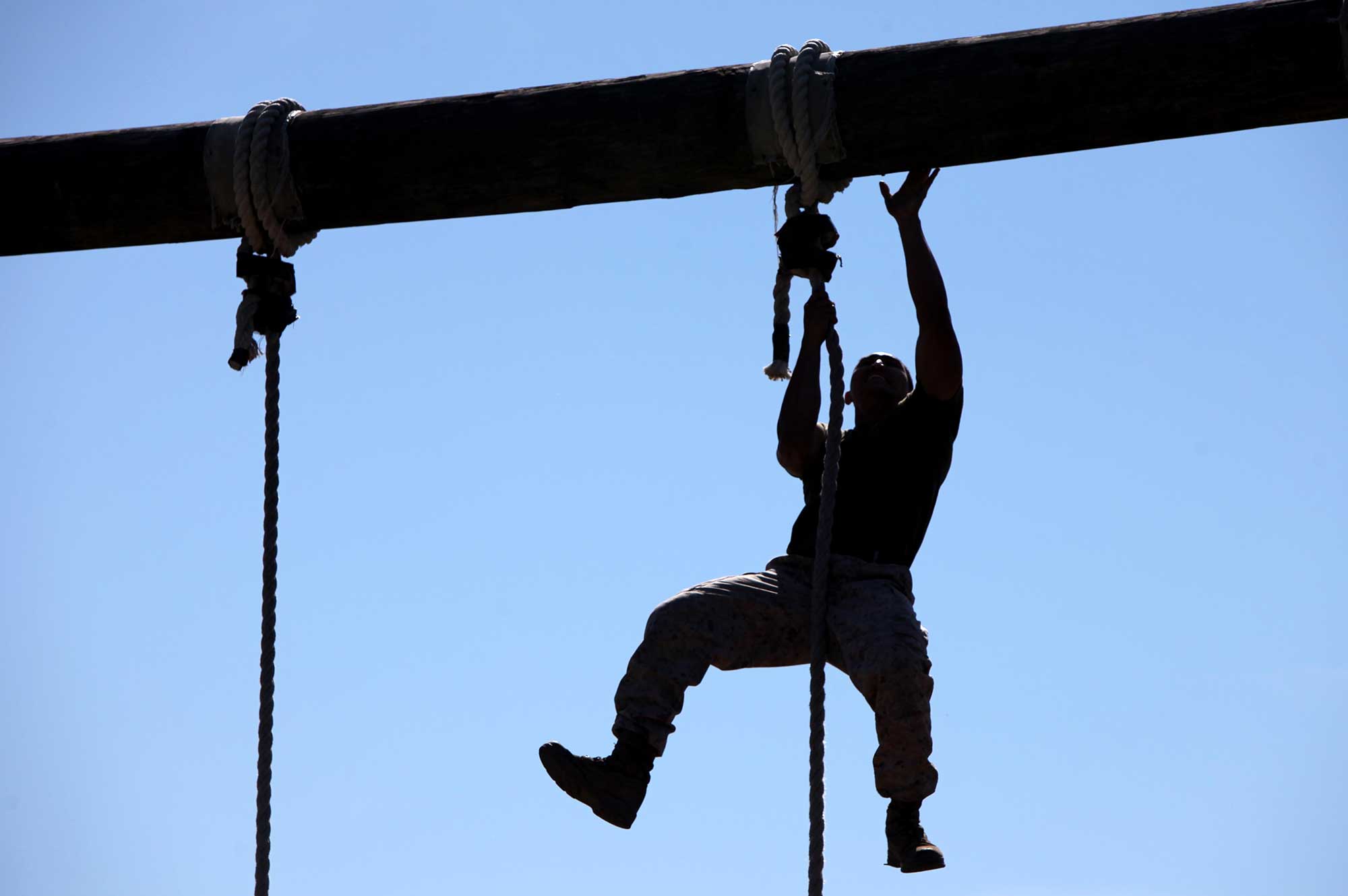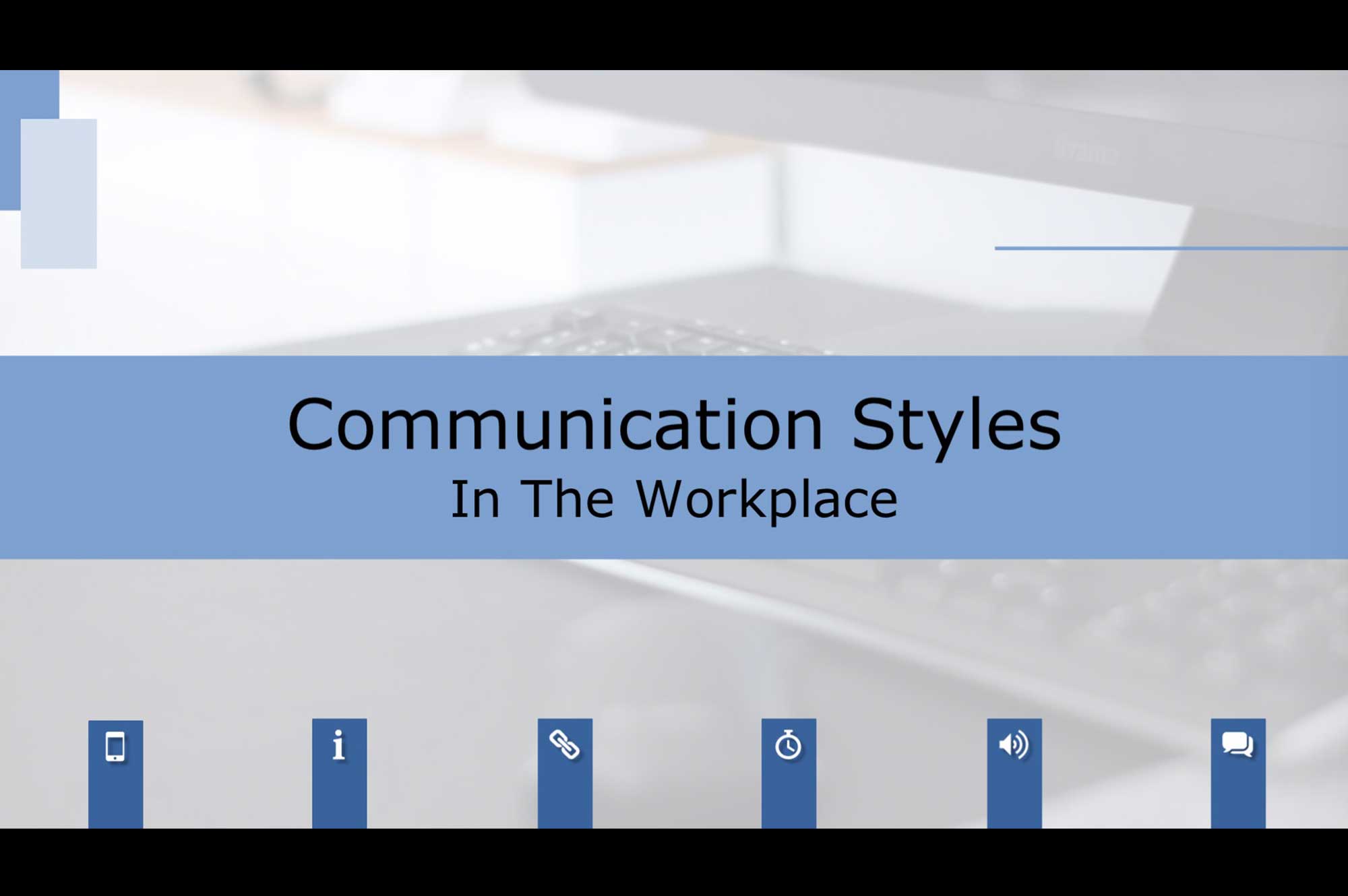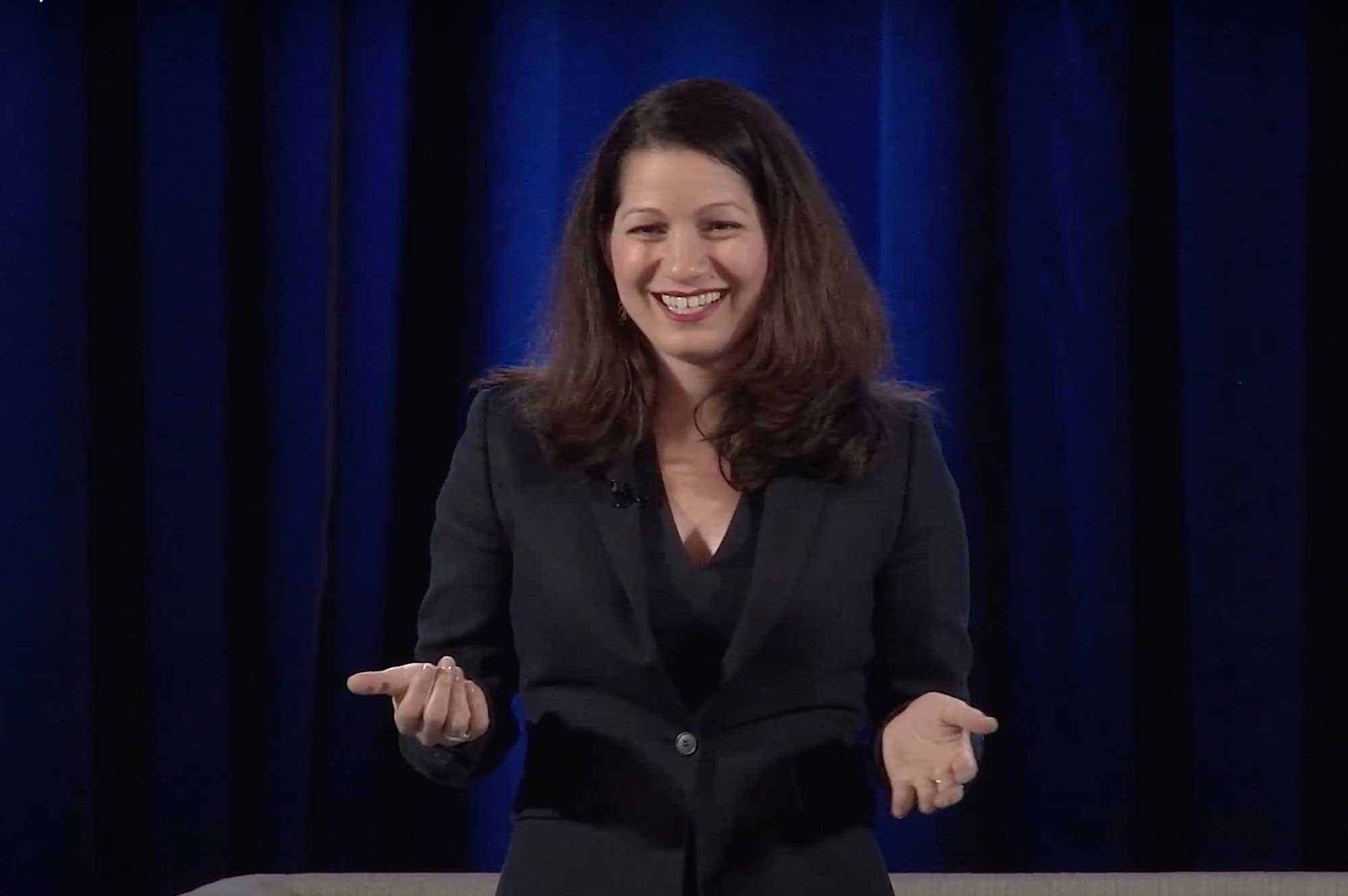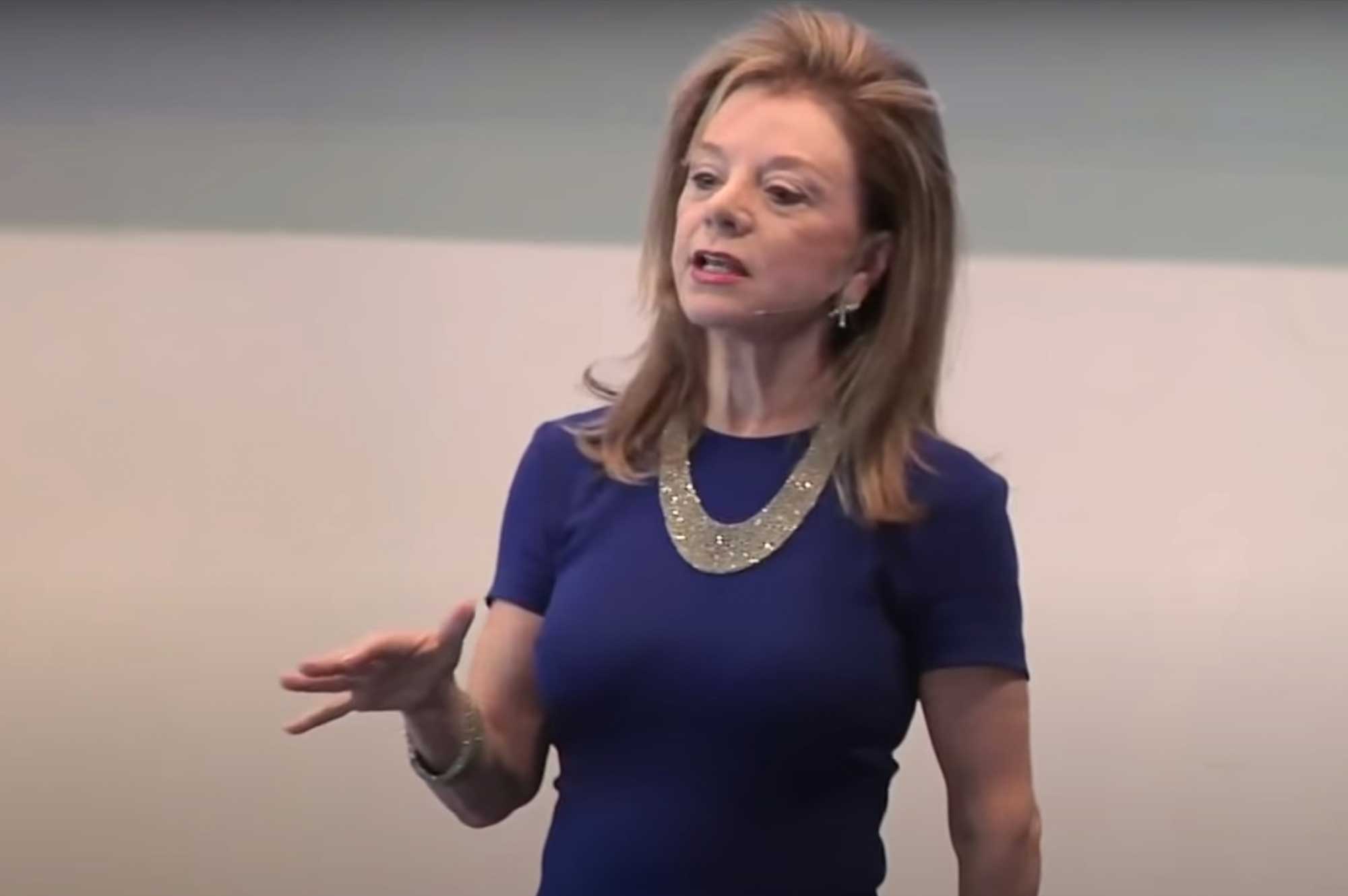Effective communication demonstrates the leader’s honesty, inclusiveness, and accessibility.
Leaders demonstrating this competency set up regular communications with their team to keep them informed. They demonstrate effective interpersonal skills and can negotiate and manage conflict when necessary. Leaders with strong communication skills consistently demonstrate expertise in multiple modes of communication and alter their approach where appropriate. They anticipate the needs of different audiences. Their information is presented seamlessly and logically, and they regularly follow up to ensure understanding.
Developing strong communication skills allows leaders to clearly and effectively deliver their message and vision in a variety of settings. It also provides them with the ability to form stronger relationships, to give and receive feedback on performance.
While verbal communication is the most obvious form, listening skills are equally important. Strong leaders are skilled listeners who can actively engage when others are speaking and gather significant amounts of information using good questioning skills. They also pay attention to the tone and body language of the speaker with the understanding that non-verbal communication is a critical component of this competency.
Studies have shown that people pay more attention to the actions and non-verbal cues of a speaker than the words being spoken. Non-verbal cues can include: facial expressions, hand motions, body posture and eye movement. When leaders develop consistency between their verbal and non-verbal communication their message becomes more convincing and they build trust more readily.
These courses are ones recommended by B.C. Corrections to fulfill the competencies for the topic of Communication.
In this course learners will have the opportunity to evaluate and develop their capabilities and confidence to engage with, lead, and motivate a team. (From: JIBC Centre for Leadership Development; Mode: In-person, scheduled course; Next offered: n/a)
This courses guides instructors, supervisors and other staff in leadership roles on how to provide effective feedback in order to promote the ongoing development of facilitators. (From: Adult Custody Training; Mode: Independent learning, online module; Next offered: ongoing)
This course focuses understanding how to apply leadership for everyone through collaborative communication. (From: JIBC; Mode: Independent learning, online module; Next offered: ongoing)
This workshop supports a coaching approach to conversations that will enhance employee engagement and improve performance (From: Public Service Agency; Mode: In-person, scheduled course; Next offered: TBA).
Upon completion of this course, participants will have been introduced to and practices the five Fierce modules, including Fierce Foundations and the four conversation types (From: Public Service Agency; Mode: In-person, scheduled course; Next offered: TBA).
The Leadership Skills Inventory is a self-assessment booklet designed to help you assess your leadership skills based on five areas (From: JIBC; Mode: Independent learning, downloaded materials; Next offered: ongoing).
At the core of being an effective leader is the knowledge of who you are in order to lead authentically. In this course, learners will gain a deeper understanding of their personal leadership style and its impact on others (From: JIBC; Mode: In-person, scheduled course; Next offered: n/a)
It’s important to know your own communication style and that of others in order to communicate more effectively. By understanding the different styles and how to accommodate for each, you will build trust, have more productive meetings, and communicate more effectively. (From: JIBC; Mode: Independent learning, online module; Next offered: ongoing)
This courses will help you to understand the problem of being a decision making boss and a coach --it will provide you with a strategy to effectively balance these two inherently conflicting roles (From: JIBC; Mode: Independent learning, online module; Next offered: ongoing)
Look here for a random selection of additional audio, video, and readings to expand an understanding of Communication.
Executive coach and public speaker Gerry Valentine provides a breakdown of the general steps required to achieve executive presence (online article).
In this talk Former opera singer and speaking expert Allison Shapira talks about the power of Executive Presence, discusses its importance, and provides strategies for achieving it (video).
Sylvia Ann Hewlett , one of the worlds most influential business thinkers, discusses executive presence – why it’s important, strategies to develop it, and the gender and cultural biases that impact it (video).
Jeswald Salcuse discusses why negotiation is a key aspect of effective leadership, and provides three key aspects of negotiation that will improve your persuasiveness as a leader (online article).
Alison Wood Brooks discusses the impact of emotion on effective negotiation and how to manage our emotions and the emotions of our counterparts for increased success (online article).



